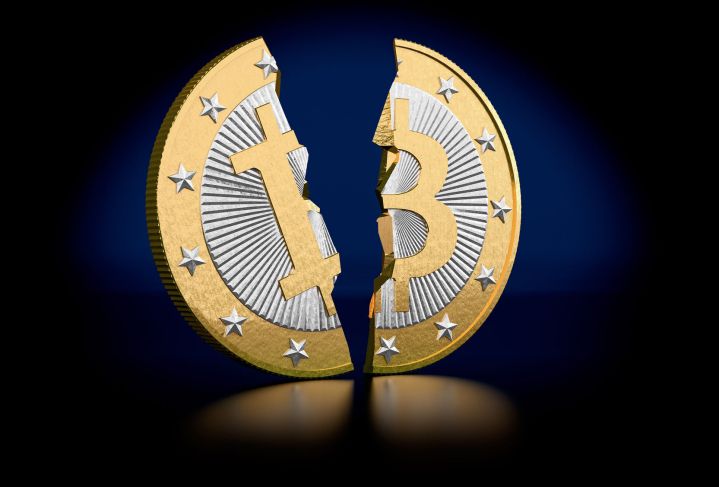
Being that they’re not physical pieces of currency, bitcoins are brought into circulation by people known as “miners.” These individuals run tens of thousands of computers at all hours of the day in order to process blocks of the latest bitcoin transactions, with rewards coming in the form of new bitcoins. In effect, these miners keep tabs on and validate the 225,000 bitcoin transactions that occur on a daily basis, and as a result, continuously increase the amount of currency in circulation (the current value of which is estimated to be $10 billion).
But now that there are fewer bitcoins up for grabs, competition among miners is getting tougher than ever.
“The most important thing is to be the most efficient miner,” Marco Streng. the 26-year-old co-founder of German firm Genesis Mining, told Reuters. His firm runs mining farms throughout the world, including Canada, the U.S., eastern Europe, and Iceland. “When the others drop out, that means that they leave the market and give you a bigger share of the pie.”
And that pie is definitely one that an increasing number of people want a piece of. While it may have seemed like a niche currency when it was first invented in 2008, bitcoin has now found its way into mainstream business. Indeed, both Overstock.com and Expedia accept bitcoin, as do a number of restaurants and other reputable organizations. It’s even being regulated (to some extent) by federal agencies.
But the cost of mining bitcoins is nothing to scoff at. Streng estimates that it costs around $200 in electricity to mine a single bitcoin. But that doesn’t even take into consideration the cost of machines, rent, wages, and businesses costs. And now that there are fewer bitcoins to be had, the cost will effectively double, and given that the current exchange rate for a bitcoin stands at $640, margins are slim.
Still, as the cryptocurrency grows in popularity, it seems that there will always be people around willing to do the work. By 2020, when everything is cut in half again, experts say that bitcoin will have become widespread enough that this cut won’t really make a difference.
Editors' Recommendations
- The best Bitcoin wallets to hodl, trade, and exchange crypto
- A used mining GPU can save you a lot money, but should you buy one?
- Intel may be working on specialized chip for mining Bitcoin
- Playing iOS games on the Mac just got a lot easier
- How to mine Bitcoin


